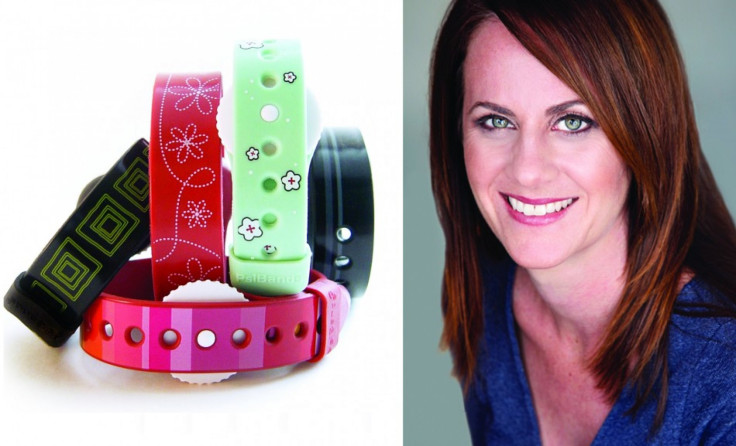Psi Bands Seizes Global Manufacturing and Sales Opportunities

Psi Health Solutions Inc. is launching its stylish acupressure wrist bands Friday in Italy, the company's seventh international market. Manufactured in China, Psi Band's global expansion mirrors a growing trend for small businesses struggling with growth and sales in the still sluggish U.S. economy.
The international marketplace is a large opportunity and one that I don't want small businesses to get scared of, Romy Taormina, co-founder of Psi Bands told the International Business Times. It's one to be embraced.
Mother to two boys, Taormina suffered months of morning sickness during her pregnancies and found nausea relief from wrist acupressure. However, she was dissatisfied with existing products that were drab and didn't stay static on the Neiguan point on the wrist -- known as the place to treat nausea and vomiting.
That was when she hatched the business idea for Psi Bands.
Founded in 2007, the Pacific Grove, California-based company was able to land a line of credit from a community bank, which got the company off running.
However, the landscape has changed dramatically in the past couple of years.
The banks aren't loaning anything now unless you can show two to three years' of profitability, Taormina said. And even with a 40 percent year-over-year growth, Psi Bands just turned its first profit in 2011.
The company started selling internationally in 2008, with an average since then of approximately 20 percent of its hundreds of thousands of units sold coming from offshore markets, according to Taormina.
After only four years on the market, Psi Bands are sold in Australia, U.K., Canada, South Korea, Turkey, and Chile.
We were able to compensate for that lack of cash flow through international business, Taormina said, explaining how better terms with the international accounts and manufacturing in China have allowed the company to run a sustainable business model.
Nationally, Psi Bands are available at stores such as CVS, Rite Aid, Babies R Us, Whole Foods and REI.
However, doing business with these big U.S. stores means after the products reach the retailer, it can take another net 75 days before Taormina could get paid.
When dealing with international companies, though, Taormina found herself in the position to ask for a full payment before products ship from the manufacturer.
I think there is an understanding among international companies that those are the terms we can command, she explained.
The strategic decision to reap the benefits of China's low-cost production also gave Psi Bands an edge among peers.
Taormina's business partner, Pieter Schouten, has been manufacturing products in China since 1999. Due to the production and assembly costs involved in the product, Psi Bands are approximately three times less to produce in China than it would be in the U.S.
We were unable to find similar opportunities when we looked to the U.S., Taormina said.
Another recent hand behind the growing wave of so-called global-preneurs is the availability of tools for small businesses to lock in currency exchange rates. In the past, doing business internationally meant a lot of banks would touch the money in between.
The payment was subjected to death by a thousand cuts, Karl Schamotta, senior market strategist for Western Union Business Solutions, told the International Business Times.
Each of those banks would be charging a transaction fee and at the same time, often exchanging one currency to another. As that happened, the ultimate receivable was being subtracted from, he added.
The cost involved would greatly compress these small businesses' profit margins and leave them feeling nervous about expanding internationally.
But things are different now.
Right now, the Renminbi is actually being used on an international scale for the first time, a huge development that's just happened over the last year, Schamotta said.
For a small business like Psi Health Solutions that manufactures in China and sells to various countries, using a tool called the deliverable RMB (renminbi) forward can give the company the ability to lock in an exchange rate in China against other currencies.
The liberalization in China and the convertibility of the currency has put these small businesses in a much better position to seize opportunities internationally, Schamotta said. It's a big boon for American businesses for sure.
© Copyright IBTimes 2025. All rights reserved.






















